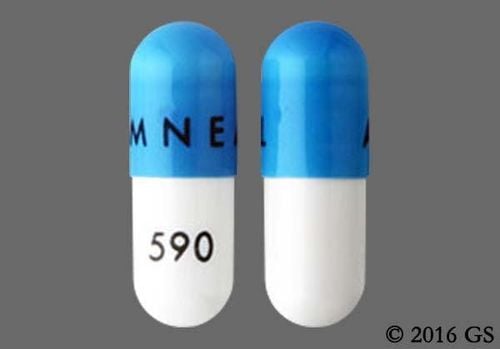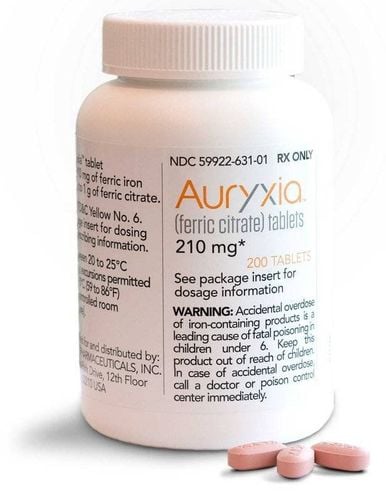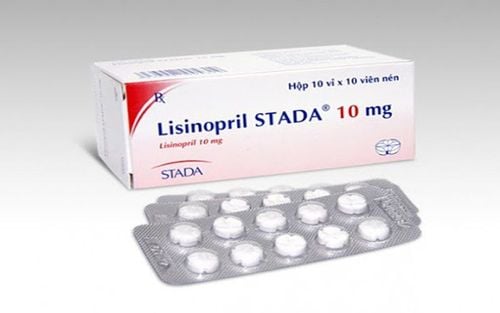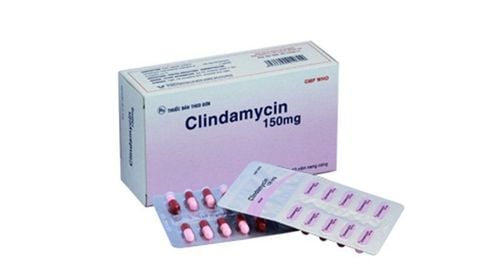This is an automatically translated article.
Etelcalcetide is used to treat elevated levels of certain hormones in people with long-term kidney disease. It works by reducing the amount of parathyroid hormone the body makes, which in turn helps lower blood levels of calcium and phosphorus, preventing bone problems.1. Uses of the drug Etelcalcetide
Etelcalcetide is a calcimimetic drug used to treat secondary hyperparathyroidism in patients on long-term hemodialysis. Dialysis treatment often causes some substances such as parathyroid hormone, calcium, and phosphorus in the body to increase. Etelcalcetide works by reducing the amount of parathyroid hormone the body makes. This effect helps reduce calcium and phosphorus levels in the blood, thereby preventing bone problems.2. How to use Etelcalcetide?
Etelcalcetide is given intravenously, at a dose depending on the health condition and response to treatment of each patient, usually 3 times per week at the end of dialysis treatment. To reduce the risk of side effects, your doctor may recommend starting with a low dose and gradually increasing the dose.If a patient misses a regularly scheduled course of dialysis, the drug should not be used until the next round of dialysis has been completed. If your doctor is switching from cinacalcet (another medicine used to reduce parathyroid hormone) to Etelcalcetide, you need to stop cinacalcet at least 7 days before you start taking Etelcalcetide.

Thuốc Etelcalcetide dùng để điều trị cường giáp thứ phát ở bệnh nhân bệnh thận
3. Some notes when using Etelcalcetide drug
Any drug can cause some side effects and Etelcalcetide is no exception. Therefore, before using Etelcalcetide, the patient should inform the medical staff of the history of allergies, medical history, especially problems with the stomach, intestines, esophagus (bleeding, heartburn, ulcers). ), seizures,...Etelcalcetide may cause a condition that affects heart rhythm (QT prolongation). The risk of QT prolongation may be increased if the patient has certain medical conditions or is taking certain other medications that can cause QT prolongation. Therefore, before using the drug, inform your doctor about any medications that you are taking, or have a certain cardiovascular condition such as heart failure, bradycardia, or a family history of heart problems. cardiovascular problems,... Low levels of potassium or magnesium in the blood can also increase the risk of QT prolongation. This risk may be increased if the patient is taking certain medications such as diuretics, or conditions such as excessive sweating, diarrhea or vomiting, etc.
Elderly people may be more sensitive to Etelcalcetide side effects, so consider the benefits and risks of the drug before using. In addition, for pregnant and lactating women, Etelcalcetide should be used only when needed, because there is a risk of unwanted effects on the infant when breastfed.
If you forget to take a dose, take it again as soon as possible. However, if it is almost time for your next dose to remember, skip the missed dose and take your next dose at the same time as the original. Never use a double dose as prescribed.
4. Undesirable effects of the drug Etelcalcetide
Some side effects of Etelcalcetide include:Nausea or vomiting: Either of these effects persists or gets worse, notify your healthcare provider right away. Low blood calcium: symptoms that indicate a drop in calcium levels such as numbness, tingling in the hands and feet, muscle spasms, convulsions, unusual tiredness, fast heart rate,... So before When using the drug, the doctor will need to check the calcium level in the patient's blood. Serious side effects include black, bloody stools, stomach pain, abdominal pain, vomit that contains blood or looks like coffee grounds. Or symptoms of heart failure such as shortness of breath, swollen ankles, unusual fatigue, sudden weight gain, etc.

Bạn có thể cảm thấy buồn nôn sau khi dùng thuốc Etelcalcetide
5. Etelcalcetide drug interactions
Some medicines when taken with Etelcalcetide can interact and change the way the medicine works as well as the risk of more serious side effects. Cinacalcet is a drug that should not be used with Etelcalcetide, because it increases the risk of low calcium levels. In addition, some other drugs can also interact, so keep the prescription you are using so that your doctor can prescribe the right treatment plan.Etelcalcetide can cause reactions and falsify test results such as calcium, parathyroid hormone, phosphorus, etc. Therefore, make sure that the technicians at the laboratory are experience and all doctors know the patient is taking this medicine.
6. How to store Etelcalcetide
Store Etelcalcetide at room temperature, away from moisture and light. Do not store in a humid place or in the freezer. Each medicine will have different storage methods, so read the Etelcalcetide storage instructions carefully on the package, or ask your pharmacist for advice on using the medicine. Keep Etelcalcetide out of the reach of children and pets. Dispose of medicine properly when it is past its expiration date or cannot be used. Do not throw Etelcalcetide down the toilet or plumbing unless told to do so. Consult your local waste disposal company or pharmacist for safe disposal of medications.In summary, Etelcalcetide is a calcimimetic drug effective in the treatment of secondary hyperparathyroidism in patients on long-term hemodialysis. It works by reducing the amount of parathyroid hormone the body makes, which in turn helps lower blood levels of calcium and phosphorus, preventing bone problems. However, before using Etelcalcetide, it is necessary to consult a doctor and apply the correct treatment regimen to prevent the risk of unwanted side effects.
Please dial HOTLINE for more information or register for an appointment HERE. Download MyVinmec app to make appointments faster and to manage your bookings easily.
Reference source: webmd.com












